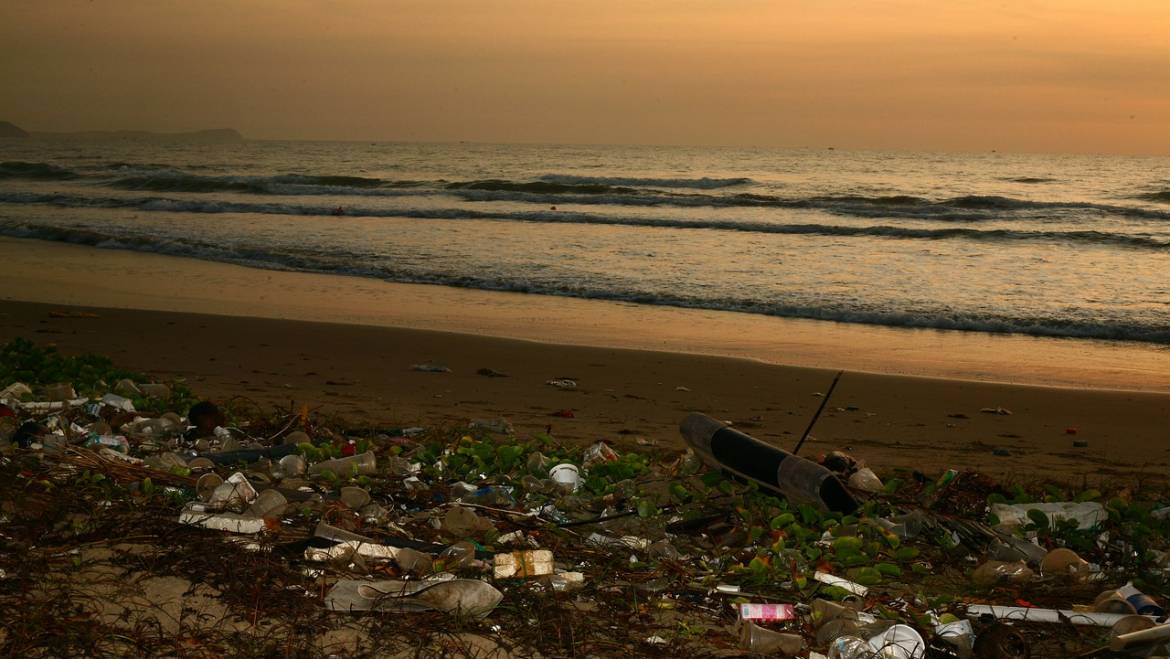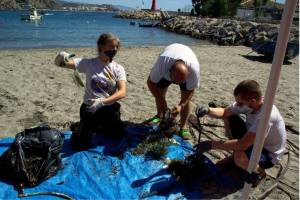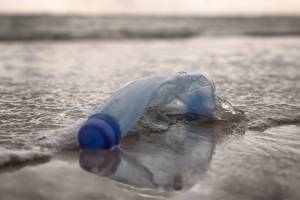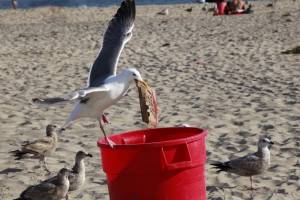Marine litter is solid waste generated by man's own action that, for different causes, end up abandoned in marine or coastal environments.
Marine litter is already considered as serious a global problem as climate change, loss of diversity or acidification of the oceans. They are a serious threat to marine life, both for its high amount in the marine environment and for its composition (mainly plastics with high tenure times, sometimes higher than 200 Years).
Every year they reach the seas and oceans near 10 millions of tons of garbage, creating a major environmental problem. The 80% of these wastes originate in the land: the ones we throw away, the ones we flushed down the toilet… who eventually make it to sea. And the 20% of these marine waste comes from activities carried out at sea.
The consequences of this is not only an aesthetic problem that affects the landscape but has a significant impact on individuals and, especially, marine ecosystems. More than a million seabirds and 100.000 mammals and turtles die each year from entanglement or intake of these residues which are mainly plastic.
In the face of this serious situation, the “Citizen decalogue against marine litter”, a consensus document between environmental organizations and entities, Administrations, companies in the sector, fishermen or entities in the third sector. This document emphasizes the importance of awareness-raising in addressing the problem of marine litter. To this end, it collects advice and good practices focused on the prevention and adoption of responsible consumption habits and the involvement and responsibility of citizens.
¿Cuáles son los puntos de este Decálogo?
- Think globally, acts locally. Let's set an example with our own responsibility.
- Deposit hygienic products (Wipes, Bacteria, Compresses, Etc.) in the trash can, never in the toilet.
- If you like fishing, be careful with rigging. The Capes, hooks or thimters can be deadly for marine animals if they fall into the sea.
- Consume responsiblely.
- Apply the 3R rule (Reduce, Reuse, Recycle) in your consumption habits to minimize the generation of marine waste.
- Enjoy nature with responsibility. Store the waste you generate and then throw it in the place enabled for it.
- Join citizen science. The more you know about something, the easier it is to act to prevent. To learn more about marine litter you can visit this website: www.aebam. Org (Spanish Association of Marine Waste).
- You can pick up some waste you find if you see it at sea or on the beach or join the beach cleanup campaigns near you.
- Educate children and young people in respect for nature and set an example in the people around you.
- When you sail, don't throw waste into the water. Save them and when you arrive at port the deposits where appropriate.
You're part of nature, on land leaves your mark and at sea, your sle.
The Marines Group of the Mediterranean has supported this initiative from the outset and is adhering to this Decalogue. Both from the Group and from the three marinas are frequently organized environmental awareness and education activities.








